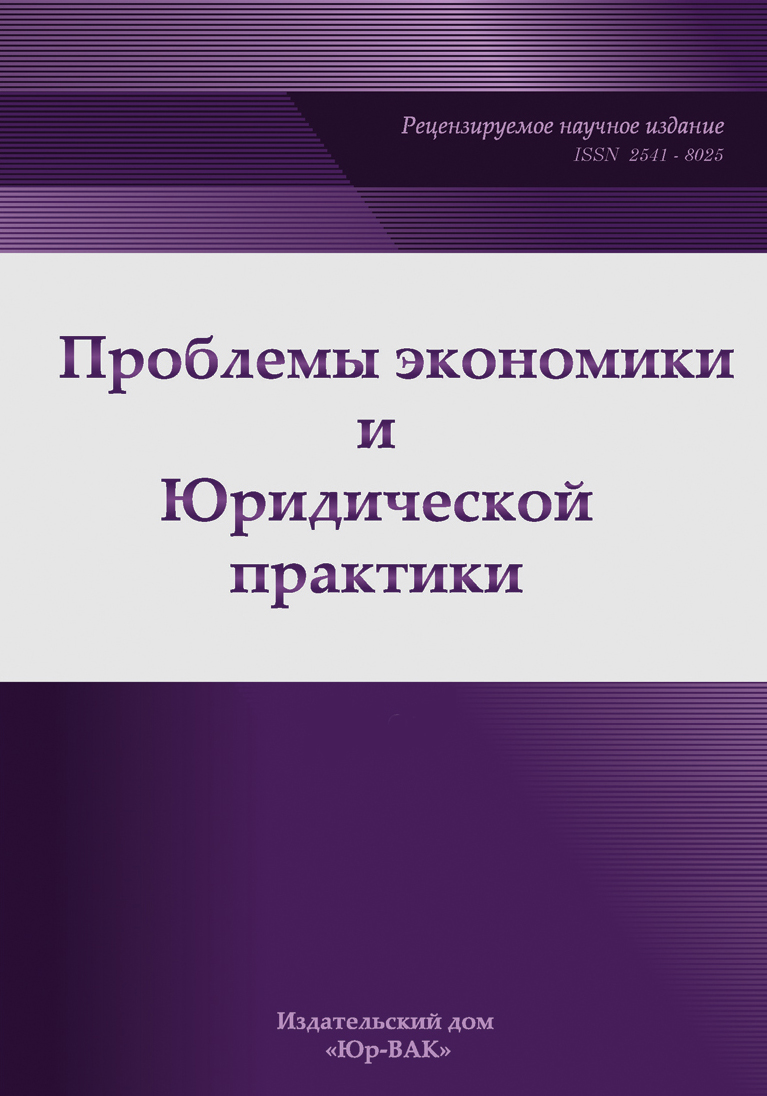Tax Policy as a Factor in Reindustrialization Activation
- Authors: Drobyshevskaya L.N.1, Alyasiri A.H.1, Chaplya V.V.1
-
Affiliations:
- Kuban State University
- Issue: Vol 18, No 6 (2022)
- Pages: 280-284
- Section: Articles
- URL: https://journals.eco-vector.com/2541-8025/article/view/545935
- ID: 545935
Cite item
Abstract
The purpose of this study is the problem of correlating tax policy for the purposes of reindustrialization based on a critical analysis of the existing model and an attempt to propose a more equitable one. The destruction of the existing financial model of post-reform Russia’s tax policy in the context of the financial project global structural crisis urges search and formation of new financial instruments, forms and principles of tax policy. The new model should be based on the principles of interconnection with the processes of reindustrialization, acquisition of national sovereignty and import substitution. The scientific novelty of the study lies in the original approach, which makes it possible to comprehensively link the policy with the necessary structural reforms that are relevant at the present stage. Hypothesis: the objective tectonic processes of the global financial system destruction and the reflection of national financial systems with the formed task of national sovereignty should be solved through a model of the tax policy impact on the process of reindustrialization activation. An approach has been formulated to increase the role of tax policy in the processes of reindustrialization, based on a change in the principle of efficiency of corporate structures, on the primacy of fair economic regulations, here efficiency is not the goal, but the result of tax policy. This approach will make it possible to identify systemic resources for establishing Russia's economic sovereignty.
About the authors
Larisa N. Drobyshevskaya
Kuban State University
Email: ld@seatrade.ru
Dr. Sci. (Econ.), Professor, Head of Department Krasnodar, Russian Federation
Amjed Hadi Yacoub Alyasiri
Kuban State University
Email: ahyaa77@yandex.ru
graduate student Krasnodar, Russian Federation
Vasily V. Chaplya
Kuban State University
Email: economic_herald@bk.ru
Cand. Sci. (Econ.), Associate Professor Krasnodar, Russian Federation
References
- Karp M.V. Tax policy of Russia in conditions of economic crisis// Finansy. 2014. No 11. P. 23-28.
- Kashin I., Merzliakov A. Tax policy and recovery of Russian economy // Auditor. 2017. No 9. P. 22-29.
- Levkevich, M. M. Harmonization of state tax policy goals and social policy (on the example of indirect taxation) /M. M. Levkevich, IU. N. Pavlenko // Sibirskaia finansovaia shkola. 2015. No 3(110). pp. 41-43. -EDN TYS/
- Smirnova E.E. Tax control in digital economy-Finance, 2017, No. 11, pp. 32-34.
- Global economy in the XXI century: dialectics of confrontation and solidarity. -London: LSP, 2018. -480 p. -ISBN 978-1-9997009-2-8. -EDN YSCABR.
- Phenomenon of market economy: business concepts of innovations in theoretical and practical solutions / K. V. Anisimov, O. A. Artemyeva, L. Ashurova [et al.]. -London: PH LSP, 2022. -327 p. -ISBN 978-1-913661-05-2. -EDN LRRFCT.
- The basic routs of the budget, tax and custom policies for 2022 and the planning periods of 2023 and 2024 // https://minfin.gov.ru/ru/document/?id_4=134362-osnovnye_napravleniya_byudzhetnoi_nalogovoi_i_tamozhenno-tarifnoi_politiki_na_2022_god_i_na_planovyi_period_2023_i_2024_godov.
Supplementary files









